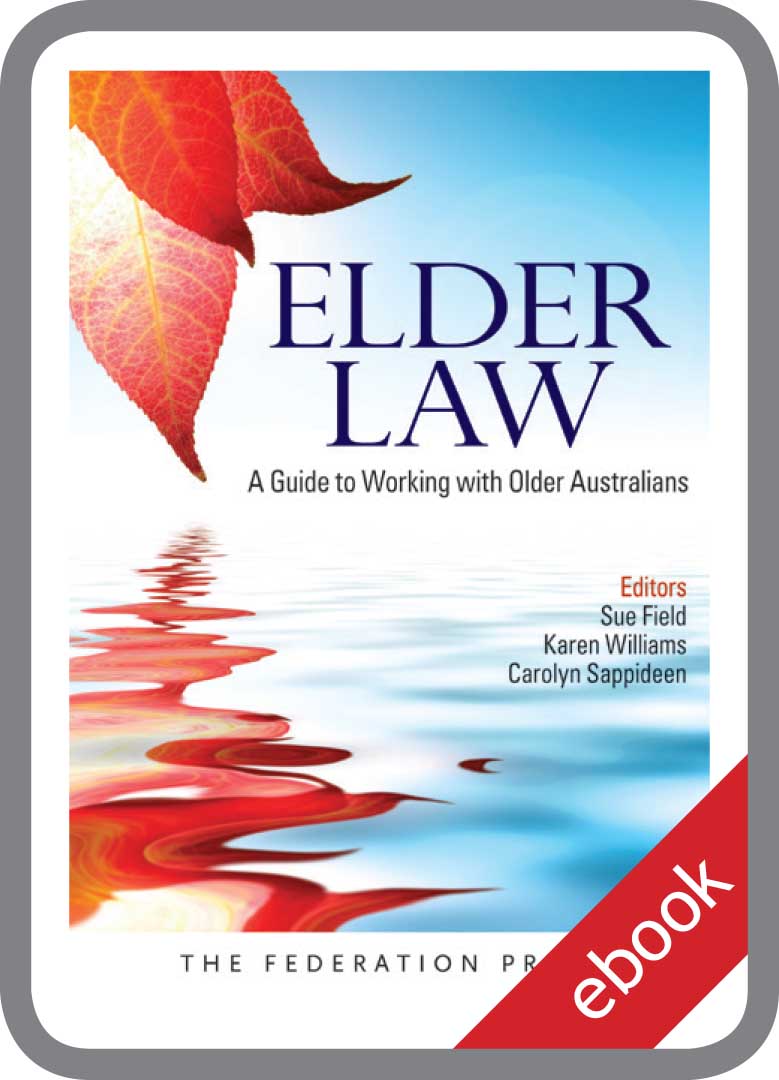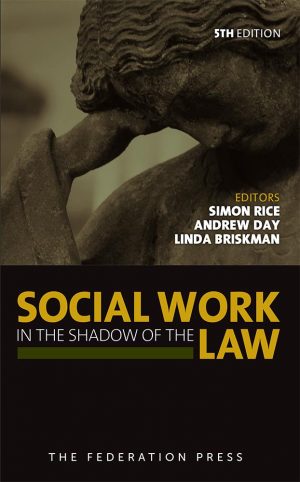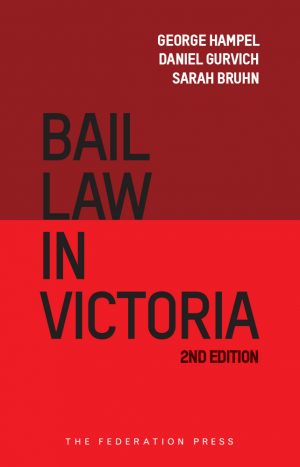Elder Law is a book for the legal practitioners, financial advisors, allied health professionals and medical practitioners working with older Australians. It is also a comprehensive and practical book for academics teaching the elder law advisors of the future.
The book takes a multifaceted approach to the issues facing older Australians and is structured around key questions including:
- Who will make decisions for me if I am unable to?
- How can I record my decisions in advance so people can make decisions that align with my preferences?
- What services are available to support me?
- Where will I live?
- How do I plan a secure financial future for myself and my loved ones?
It responds to these questions in 20 chapters, each written by experts who are actively engaged in the field. Chapters address issues such as: supported and substitute decision-making including substitute decision-making instruments; the roles of tribunals hearing guardianship and financial matters; the accommodation options available to older Australians and the financial implications of these choices; financial issues including superannuation and Centrelink benefits, and financial elder abuse; and older age discrimination.
Preface
About the Contributors
Table of Cases
Table of Statutes
Part I – Introduction
1. Overview of Elder Law
Karen Williams, Carolyn Sappideen, Michael Perkins and Sue Field
Part II – Your Capacity to Make Decisions
2. Tribunals and Statutory Authorities
Anita Smith
3. Assessment of Decision-Making Capacity
Peteris Darzins
4. Powers of Attorney
Ray Ward
5. Enduring Guardianship
Karen Williams
6. Advance Care Directives
Cameron Stewart
7. Supported Decision-Making
John Chesterman
Part III – Where You Live: Support Services and Accommodation Options
8. National Disability Insurance Scheme
Bill Madden, Janine McIlwraith and Ruanne Brell
9. Commonwealth Home Support Programme
Karen Williams
10. Granny Flats
Sue Field
11. Boarding Houses
Carolyn Sappideen
12. Mobile, Relocatable, Manufactured Homes and Lifestyle Resorts
Carolyn Sappideen
13. Retirement Villages
Sean McCarthy
14. Residential Aged Care Facilities and Home Care
Brian Herd
Part IV – Funding Your Retirement: Sources of Income and Risk
15. Government Pensions and Benefits
Adam Steen
16. Superannuation
Michael Perkins
17. Reverse Mortgages
Adam Steen and James Taggart
18. Financial Abuse
Teresa Somes and Eileen Webb
Part V – Your Estate
19. Your Estate
Robert Monahan and Julia Monahan
Part VI – A Fair Go
20. Discrimination
Meredith Blake
Bibliography
Index
In a collection of thematic essays, Elder Law: A Guide to Working with Older Australians addresses topics commonly encountered in administration of “Elder Law”, drawing upon the expertise of contributors from diverse backgrounds, not legal alone. Engagement with professionals across different social disciplines is a common feature of “Elder Law” in practice. Lawyers have no monopoly of interest in the due operation of “Elder Law”. …
Elder Law: A Guide to Working with Older Australians is a valuable contribution to a conversation about Australian law and practice dealing with vulnerable people. It is particularly helpful in identifying problems and setting them in their legislative and administrative context across Australia’s geographical boundaries.
The Hon Justice Geoff Lindsay, Australian Law Journal, Vol 93, Issue 10, 2019
Those of us who think that our experience in preparing wills and powers of attorney and advising on retirement village and residential aged care facilities contracts have got this area of law pretty well covered may have some reading to do.
The editors have assembled 21 authors, including themselves, to address a broad range of practical topics covering not just the expected items mentioned above but also advance care directives, supported decision making, the NDIS, the Commonwealth Home Support Programme, government pensions and benefits, reverse mortgages, financial abuse and age discrimination. …
Focused on practical issues relevant to this area, the book is set out in concise and well-formatted chapters. It will serve both as a useful adjunct to practitioners and a wake up call to the issues we need to be aware of in this developing area.
Peter Flanagan, InPrint, Law Institute Journal Victoria, April 2019







